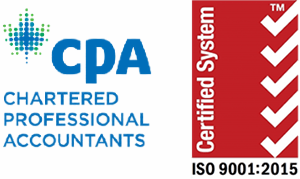What is a strategic Acquisition?
And therein lies the definition of a strategic acquisition. Most acquisitions run a predictable pattern of industry norms, but a strategic can pay a significant premium for your business because they are looking at your business for what it is worth in their hands. Rather than forecasting out your future profits and estimating what that cash is worth in today’s dollars, a strategic is calculating the economic benefit of grafting your business onto theirs.
Factors that Lead to Strategic Acquisitions
There can be many strategic reasons why a big company might want to buy yours. Here are a few to consider:
1. To control their supply chain
In 2011, Starbucks announced it had acquired Evolution Fresh, one of their providers of juice drinks, for $30 million. Now Starbucks is no longer beholden to one of its suppliers.
2. To give their salespeople something else in their briefcase
Also in 2011, AOL announced the acquisition of The Huffington Post for $315 million, even though HuffPo had just turned its first modest profit on paper. AOL wanted to give its advertising salespeople more inventory to sell and HuffPo had 26 million unique visitors a month.
3. To make their cash cow product look sexier
Microsoft bought Skype for $8.5 billion dollars even though Skype was losing money. The good folks in Redmond must have assumed they could sell more Windows, Office, and Xbox by integrating Skype into everything they already sell.
4. To enter a new geographic market
Herman Miller paid $50 million to acquire China’s POSH Office Systems in order to get a beachhead into the world’s fastest-growing market for office furniture.
5. To get a hold of your employees
Facebook reportedly acquired Internet start-up Hot Potato for $10 million, largely to get hold of the talented developers working at the company.
Example Strategic Acquisition
Example Strategic Acquisition – Facebook’s Acquisition of WhatsApp
At the time of the acquisition in February 2014, WhatsApp had acquired some 450 million users. Their business model is to charge a subscription of $1 per year after their first full year of service. Even if all 450 million WhatsApp users were already paying, that is still less than half a billion in revenue. Why would Facebook acquire WhatsApp for a number that is somewhere north of 40 times revenue?
Nobody knows for sure what is in Mark Zuckerberg’s head, but we can only assume that at least part of the opportunity Facebook sees is the opportunity to sell more Facebook ads because of the information they glean from WhatsApp users. Global advertising giant Publicis estimates 2013 online advertising spending in the US alone to be around $500 billion. Presumably, Facebook believes they can get a larger chunk of the global online ad buy because they know more about its users by owning WhatsApp.
Most acquisitions are done for rational reasons where an acquirer agrees to pay today for the rights to your future stream of cash. You may, however, be able to get a significant premium for your company if you can figure out how much it is worth in someone else’s hands.







